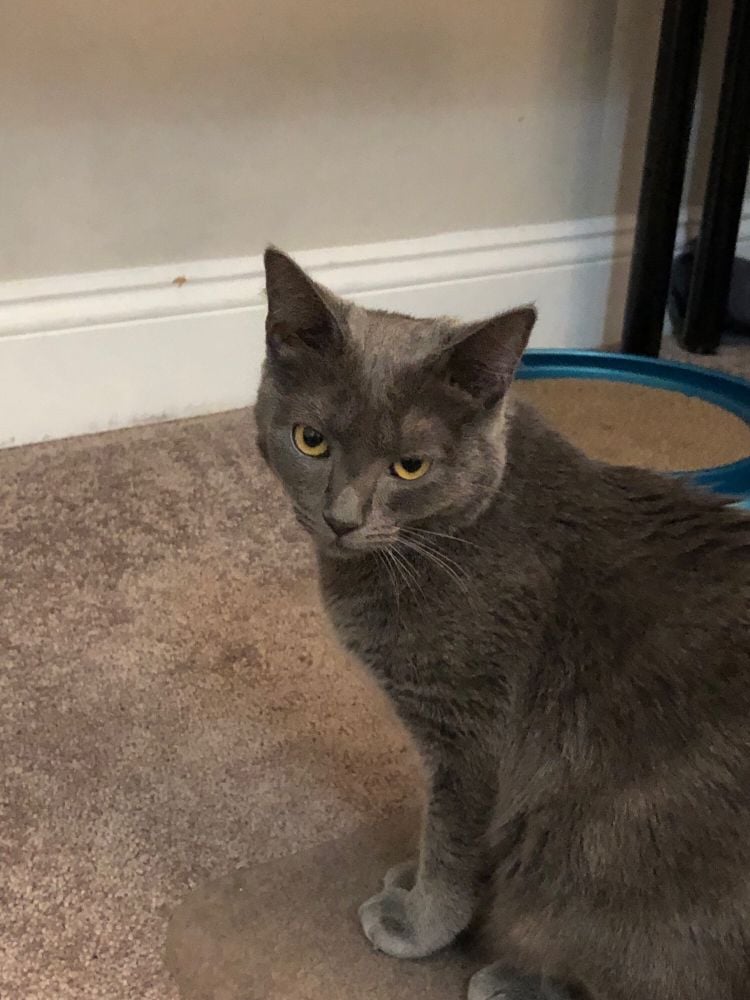Ice Clouds and a New Cat
Bowler Hat Science from Matthew R Francis
I know which bit of this newsletter is gonna grab your attention, so I'll keep the sciency bit brief.
Turbulence Giveth, Turbulence Taketh Away
High-altitude clouds are mostly composed of ice crystals, along with clouds in really cold conditions. Those crystals fall under gravity, but they also have distinctly flat shapes — hexagons and clumps of hexagons — that act somewhat like drag chutes, so that the wider part faces toward the ground. In other words, if you have a bunch of crystals falling together, they tend to align, and when light from the Sun, Moon, or even artificial bulbs hits them, it produces beautiful effects: sundogs, rings around the Moon, and the vertical beams known as ice columns.
My latest contribution to SIAM News covers research on how and why ice does this, including a fun little experiment where the scientists 3D print little disks and inject them into an air chamber to watch them fall with high-speed cameras. But the bigger question is how atmospheric turbulence changes things. As it turns out, turbulence can both disrupt how the crystals fall, so they don't align as readily, but can also bring widely-separated crystals closer together.
The Turbulent Tale of Icy Clouds
As usual, articles I write for SIAM News contain some math, but I write them to make it possible for non-math people to understand.
And Now, What You've All Been Waiting For!

Nebula is a one-year-old spayed female cat, whose loves are: head scratches, playing with ribbon, playing with mousie toys, chasing the laser pointer dot, playing with balls, and eating. Did I mention playing? She joins 5-year-old cat Callisto in making sure the household is appropriately chaotic.